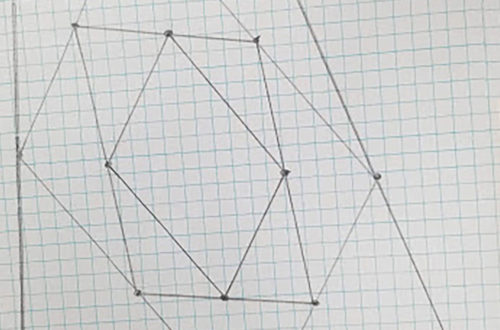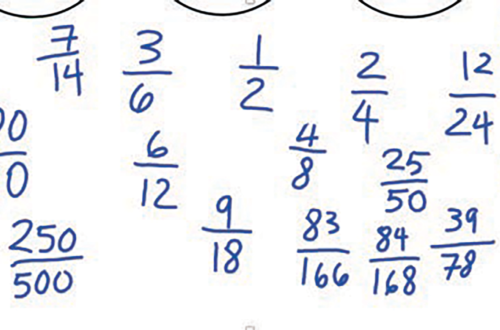Journal of the Mathematics Council of the Alberta Teachers’ Association
Volume 27 Issue 1, June 1988
Welcome to the second issue of delta-K devoted to the topic of technology and mathematics. In this issue, J. Dale Burnett’s guest editorial discusses the importance of values in technology and mathematics. An article by Kate Le Maistre encourages teachers to use television, particularly the VCR, to enhance the teaching of mathematics. Marlow Ediger offers guidelines for using microcomputers to teach mathematics.
The articles by Francis Sommerville and Ron Taylor present microcomputer programs using BASIC and Logo respectively to solve the same mathematical problem. Scott Erickson discusses both the graphic art of M. C. Escher and the technology applied to the deformation of tessellations. J. Dale Burnett uses psychological theory to design practice sessions on the computer. George Cathcart shows how Logo programs can be used to perform arithmetic tasks. Barry McGuire explains how a computer simulates science studies and experiments in a school-designed scientific studies and computer course.
“Student Problem Corner” features a mathematical exercise reprinted from Resource Problems to Enhance the Teaching of Mathematics, an algebraic solution and computer program published by the Department of Mathematical Sciences, University of Delaware. In addition to “Student Problem Comer,” a new section entitled “Student Problem Solvers” has been added. Will it become a regular component of delta-K? Can students develop an alternate algorithm or an algorithm using a different language? Solutions submitted to “Student Problem Corner will be published in the next issue.
John B. Percevault
1
2
John B. Percevault
3 – 4
Technology and Mathematics: The Importance of Values
J. Dale Burnett
5 – 6
If This Is Television, Shouldn’t My Intelligence Be Insulted?
Kate Le Maistre
7 – 9
Mathematics Education and Technology
Marlow Ediger
10 – 13
Programming: A Subset of Problem Solving
Francis Sommerville
14 – 18
Using Logo to Solve Sommerville’s Algorithm for Adding Mixed Numbers
Ron Taylor
19 – 24
Escher Revisited: Modeling Gradual Deformations Using Logo
R. Scott Erickson
25 – 31
Logo: An Opportunity for Synthesis, Self-Control and Sharing
J. Dale Burnett
32 – 37
Integrating Mathematics and Logo: A Four-Step Approach
W. George Cathcart
38 – 41
Of Students, Computers and Learning
Barry McGuire
42 – 46
Edited by John B. Percevault
47
Edited by John B. Percevault
48



